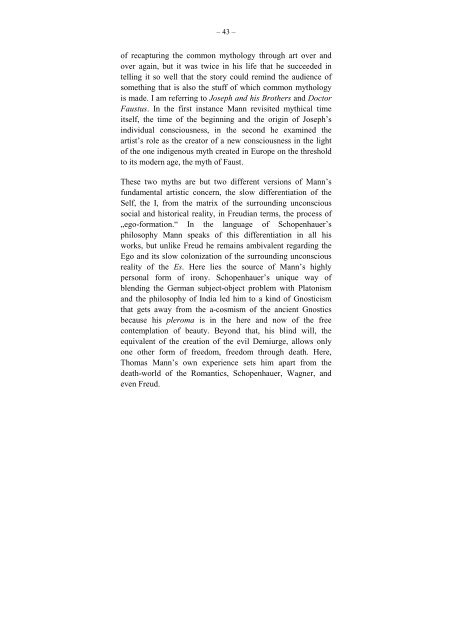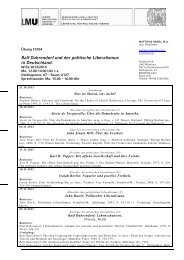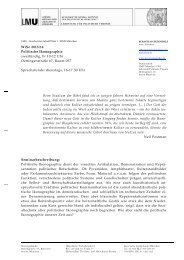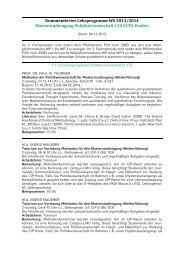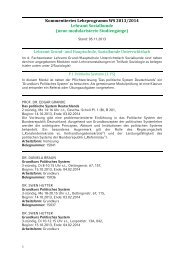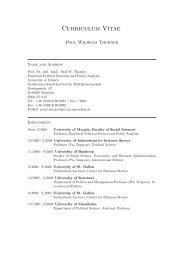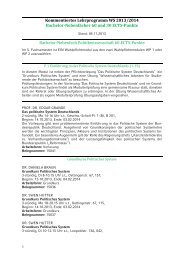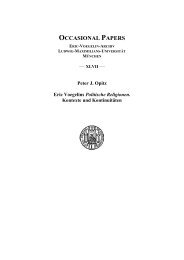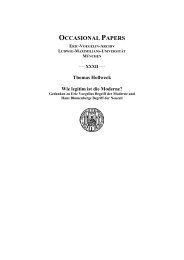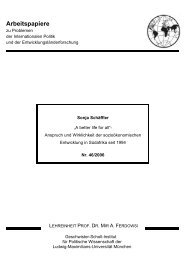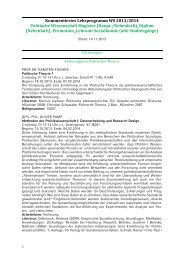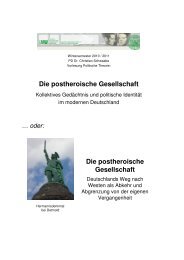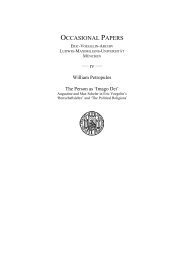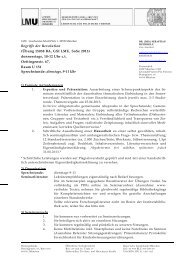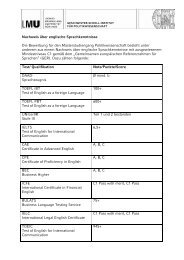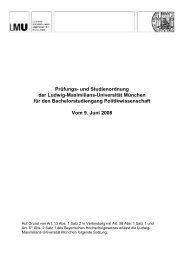THOMAS HOLLWECK is Associate Professor of German at
THOMAS HOLLWECK is Associate Professor of German at
THOMAS HOLLWECK is Associate Professor of German at
Create successful ePaper yourself
Turn your PDF publications into a flip-book with our unique Google optimized e-Paper software.
– 43 –<br />
<strong>of</strong> recapturing the common mythology through art over and<br />
over again, but it was twice in h<strong>is</strong> life th<strong>at</strong> he succeeded in<br />
telling it so well th<strong>at</strong> the story could remind the audience <strong>of</strong><br />
something th<strong>at</strong> <strong>is</strong> also the stuff <strong>of</strong> which common mythology<br />
<strong>is</strong> made. I am referring to Joseph and h<strong>is</strong> Brothers and Doctor<br />
Faustus. In the first instance Mann rev<strong>is</strong>ited mythical time<br />
itself, the time <strong>of</strong> the beginning and the origin <strong>of</strong> Joseph’s<br />
individual consciousness, in the second he examined the<br />
art<strong>is</strong>t’s role as the cre<strong>at</strong>or <strong>of</strong> a new consciousness in the light<br />
<strong>of</strong> the one indigenous myth cre<strong>at</strong>ed in Europe on the threshold<br />
to its modern age, the myth <strong>of</strong> Faust.<br />
These two myths are but two different versions <strong>of</strong> Mann’s<br />
fundamental art<strong>is</strong>tic concern, the slow differenti<strong>at</strong>ion <strong>of</strong> the<br />
Self, the I, from the m<strong>at</strong>rix <strong>of</strong> the surrounding unconscious<br />
social and h<strong>is</strong>torical reality, in Freudian terms, the process <strong>of</strong><br />
„ego-form<strong>at</strong>ion.“ In the language <strong>of</strong> Schopenhauer’s<br />
philosophy Mann speaks <strong>of</strong> th<strong>is</strong> differenti<strong>at</strong>ion in all h<strong>is</strong><br />
works, but unlike Freud he remains ambivalent regarding the<br />
Ego and its slow coloniz<strong>at</strong>ion <strong>of</strong> the surrounding unconscious<br />
reality <strong>of</strong> the Es. Here lies the source <strong>of</strong> Mann’s highly<br />
personal form <strong>of</strong> irony. Schopenhauer’s unique way <strong>of</strong><br />
blending the <strong>German</strong> subject-object problem with Pl<strong>at</strong>on<strong>is</strong>m<br />
and the philosophy <strong>of</strong> India led him to a kind <strong>of</strong> Gnostic<strong>is</strong>m<br />
th<strong>at</strong> gets away from the a-cosm<strong>is</strong>m <strong>of</strong> the ancient Gnostics<br />
because h<strong>is</strong> pleroma <strong>is</strong> in the here and now <strong>of</strong> the free<br />
contempl<strong>at</strong>ion <strong>of</strong> beauty. Beyond th<strong>at</strong>, h<strong>is</strong> blind will, the<br />
equivalent <strong>of</strong> the cre<strong>at</strong>ion <strong>of</strong> the evil Demiurge, allows only<br />
one other form <strong>of</strong> freedom, freedom through de<strong>at</strong>h. Here,<br />
Thomas Mann’s own experience sets him apart from the<br />
de<strong>at</strong>h-world <strong>of</strong> the Romantics, Schopenhauer, Wagner, and<br />
even Freud.


